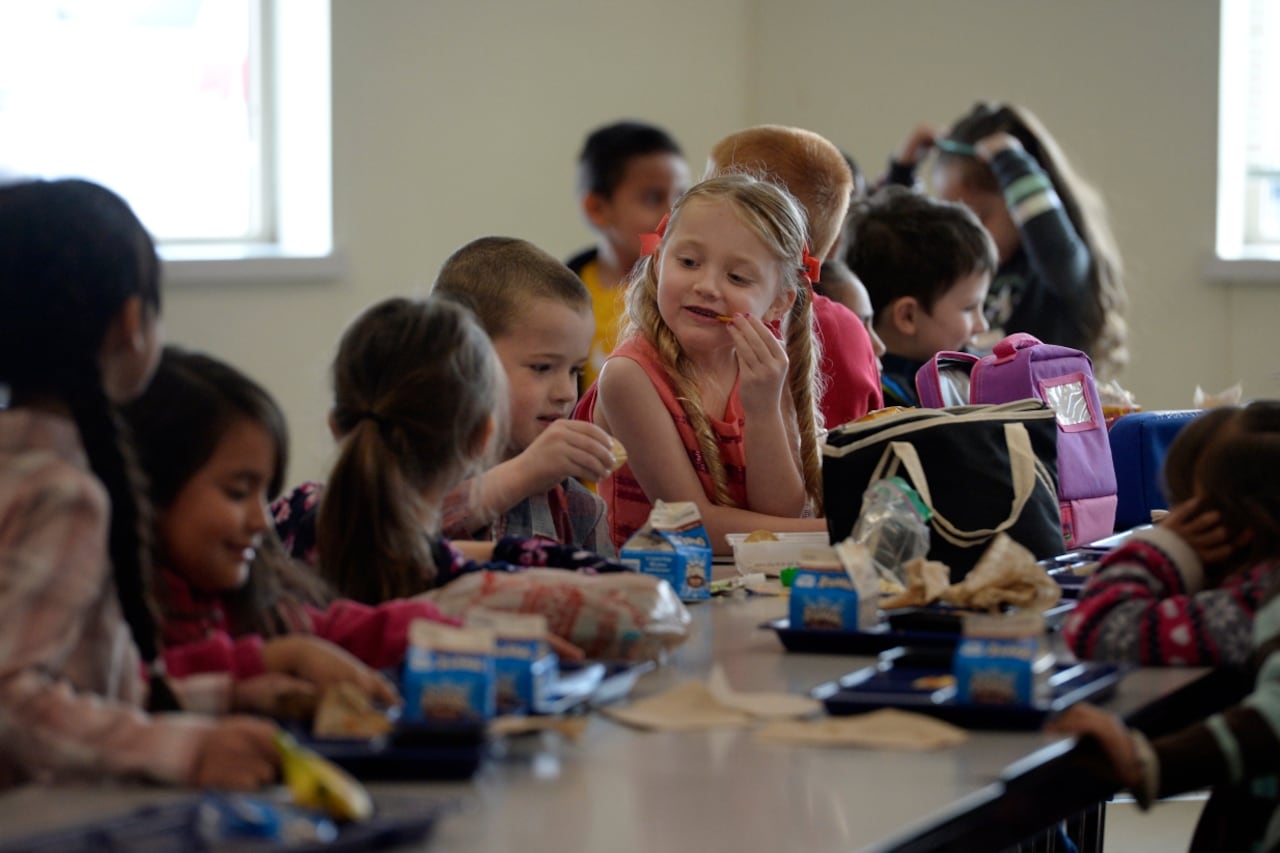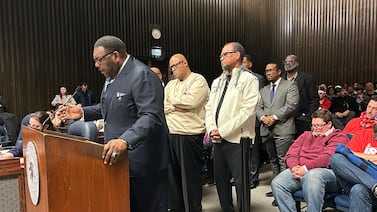Amid a host of hardships, the pandemic brought a silver lining to Colorado schools: All students could eat lunch for free, with no stigma and no paperwork.
A broad coalition of nutritionists and farmers, parents and teachers wants to see Colorado continue this benefit into the future.
“This is an incredible opportunity for our kids to continue to get access to meals and not have to worry about whether or not their families can afford it or whether or not their families have applied for assistance,” said Taylor Hubbard, an elementary parent from Bellvue in northern Colorado. “It’s just one less worry.”
But Colorado lawmakers of both parties have concerns about the cost of the proposal — an estimated $118 million a year — when the state has many other unmet education needs. After more than two hours of testimony Wednesday, the Senate Education Committee delayed a vote on Senate Bill 87 so the sponsors can look for ways to lower the cost.
Bill sponsor state Sen. Brittany Pettersen, a Lakewood Democrat, said she’s confident Colorado lawmakers can prioritize the money to feed many more children than it did before the pandemic. But she and fellow bill sponsors plan to introduce amendments that would lower the cost, possibly excluding some districts with a greater number of higher-income families.
The bill is also sponsored by state Sen. Rhonda Fields of Aurora and state Reps. Serena Gonzalez-Guitierrez of Denver and Dafna Michaelson Jenet of Commerce City.
Even without the amendment, Pettersen estimates the cost to the state could be about half of the $118 million state analysts expect. She said it’s unclear whether every district or school would participate in the program and the federal government should cover some of the expenses.
Universal free lunch is a longtime goal of many children’s advocates, who see benefits such as ensuring students can focus on school and not hunger, eliminating the stigma of free lunch, and helping families who struggle to put food on the table. They say that can improve classroom behavior and increase student learning.
Colorado already picks up the extra cost of reduced price meals, making them free to families, but this proposal would go much further.
The Senate bill seeks to feed all students, regardless of if they qualify for subsidized lunch. The bill would reimburse schools for meals for those students who don’t qualify for the federal meal program.
The program would start in the 2023-24 school year, assuming Colorado is accepted into a federal pilot program to automatically provide free school meals to children who qualify for Medicaid, even if their parents don’t fill out paperwork for the existing school lunch program.
Grants would allow participating districts to feed students products grown, raised, or processed in Colorado and to raise pay for food service workers. Schools would also need to report to the state education department how many students participate and administrators would need to apply for federal reimbursements to help offset the cost to the state.
During the committee meeting, state Sen. Paul Lundeen, a Monument Republican, said he worried about the high cost and about students from high-income backgrounds using a program they don’t need.
“I’d rather spend that on academic opportunities for children,” Lundeen said.
About 40 people testified on Wednesday in support of the bill.
Leslie Colwell, Colorado Children’s Campaign vice president, said the nonprofit group found on average 10% of households reported not having enough to eat from late April 2020 to March 2021. And she said the income thresholds for students to receive subsidized school meals net only those from the lowest-income families.
During the pandemic, once campuses reopened, schools reported participation in the federal free lunch program increased 20% to 40% from pre-pandemic times.
Ashley Wheeland, Hunger Free Colorado public policy director, said the organization estimates the program would save families about $78 million in food expenses.
“We believe this is a cost that we can as a state afford and will have such important outcomes for children,” Wheeland said. “It’s really an investment in education because kids learn better when they’re fed.”
Legacy High School student Anoushka Jani told legislators she’s seen fellow students not eat all day because they don’t have what they need. She said without students getting food, “they can’t focus on their education.”
Jason Gonzales is a reporter covering higher education and the Colorado legislature. Chalkbeat Colorado partners with Open Campus on higher education coverage. Contact Jason at jgonzales@chalkbeat.org.





